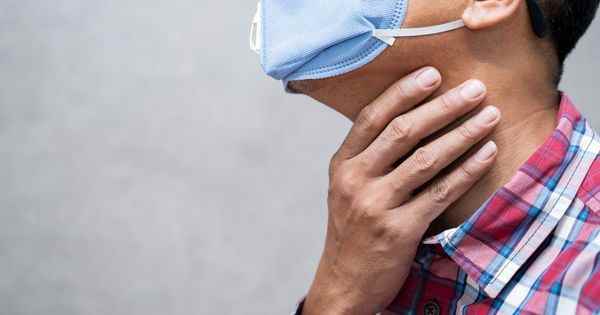Published ,
Reading 1 min.
A new Swedish study warns of an increase in cases of odynophagia, or pain when swallowing, in people affected by Omicron.
A new symptom that would be particularly linked to contamination by the Omicron variant may have been discovered. This is odynophagia, in other words, pain when swallowing.
Increase in cases of pain when swallowing
This is a study published in the medical journal National Library of Medicine, conducted by researchers from the University of Stockholm who report this novelty. “We have noticed an increase in requests for the care of several patients with Covid-19, for symptoms similar to those of epiglottitis”explain the authors of the study.
Since epiglottitis is an infection of the epiglottis and the tissues surrounding it, if not treated quickly, it can lead to obstruction of the airways and, in the worst cases, to death. The researchers therefore explain that they conducted a study on 20 patients positive for Covid and the Omicron variant, admitted to the emergency room for ENT, nose, throat and ear disorders. Among them: 15 were vaccinated with a complete schedule and 4 had to be hospitalized.
No cases of epiglottitis
Results ? No case of epiglottitis was identified among those studied, dismissing this track. The most reported symptoms were those of laryngotracheitis, or pharyngitis, severe throat pain that can lead to pain when swallowing. Acute odynophagia.
Consult a GP online
Omicron attacks more the upper respiratory tract
“What is important to note is that until now the other variants caused disorders of smell or even taste, but now Omicron seems to mainly attack the upper respiratory tract”, conclude the researchers. A discovery which should allow, if it is confirmed on more cases, to evolve the care of patients towards a constant analysis of the state of the upper respiratory tract in order to ensure that no edema is formed.
